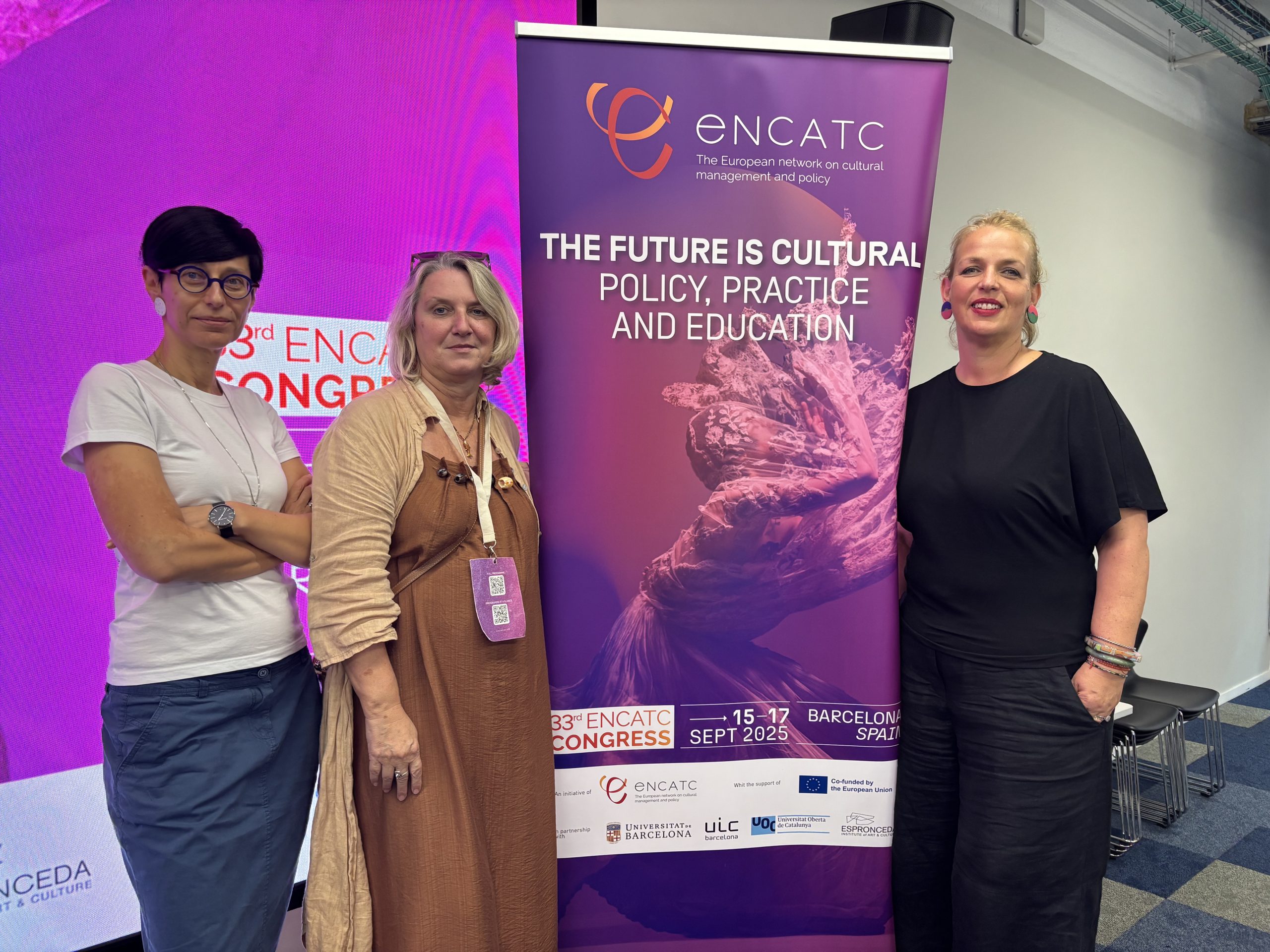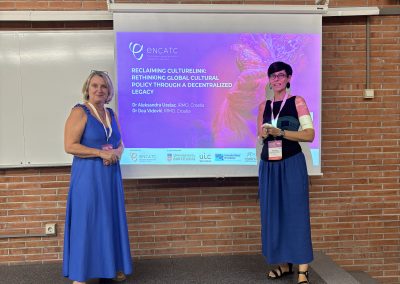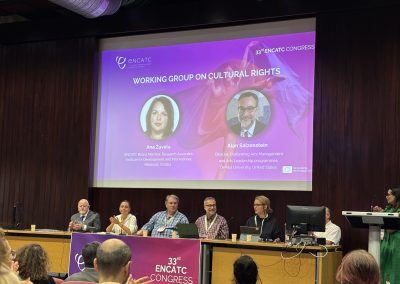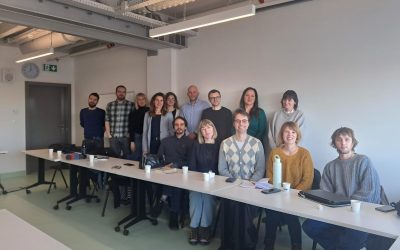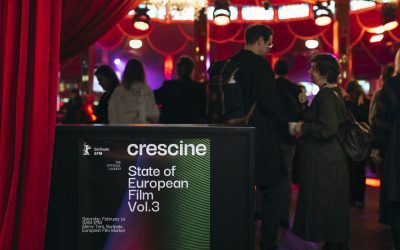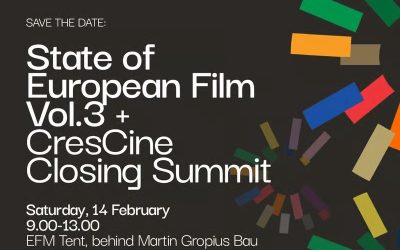IRMO researchers from the Department of Culture and Communication and CULTMED project collaborators, Dr. Aleksandra Uzelac, Dr. Ana Žuvela, and Dr. Dea Vidović, participated in the 33rd congress of the European Network on Cultural Management and Policy (ENCATC). The congress, titled “The Future is Cultural: Policy, Practice, and Education”, was held in Barcelona from 15 to 17 September 2025 in collaboration with the Universitat de Barcelona, Universitat Internacional de Catalunya, Universitat Oberta de Catalunya, and the Espronceda Institute of Arts and Culture.
This year’s congress programme was designed to encourage debate on the strategic role of culture, not only as a foundation for the well-being of individuals, communities, and organisations but also as a key pillar of society as a whole and as a possible framework for fostering more inclusive, resilient, and equitable development in times of global transformation. The congress brought together experts working at the intersection of research, education, and practice to reflect on and shape what lies ahead. Held in Barcelona just before the MONDIACULT 2025 World Conference, the ENCATC congress provided a unique international platform to advance the global dialogue on the role of culture in a sustainable and regenerative future. The congress featured numerous scientific panels, policy debates, and project presentations.
Ana Žuvela, member of the ENCATC Board and Scientific Committee, participated at the congress in her role as chair of the Working Group on Cultural Rights, where she led the group’s work and presented the main findings that will be shared at UNESCO’s World Conference on Cultural Policies and Sustainable Development – MONDIACULT 2025.
Aleksandra Uzelac and Dea Vidović presented the paper “Reclaiming Culturelink: Rethinking Global Cultural Policy through a Decentralized Legacy” within the research section of the programme. The paper reflects on the Culturelink network as a paradigmatic example of transnational cultural cooperation and analyses its institutional development within global cultural policies from 1989 to 2025.
